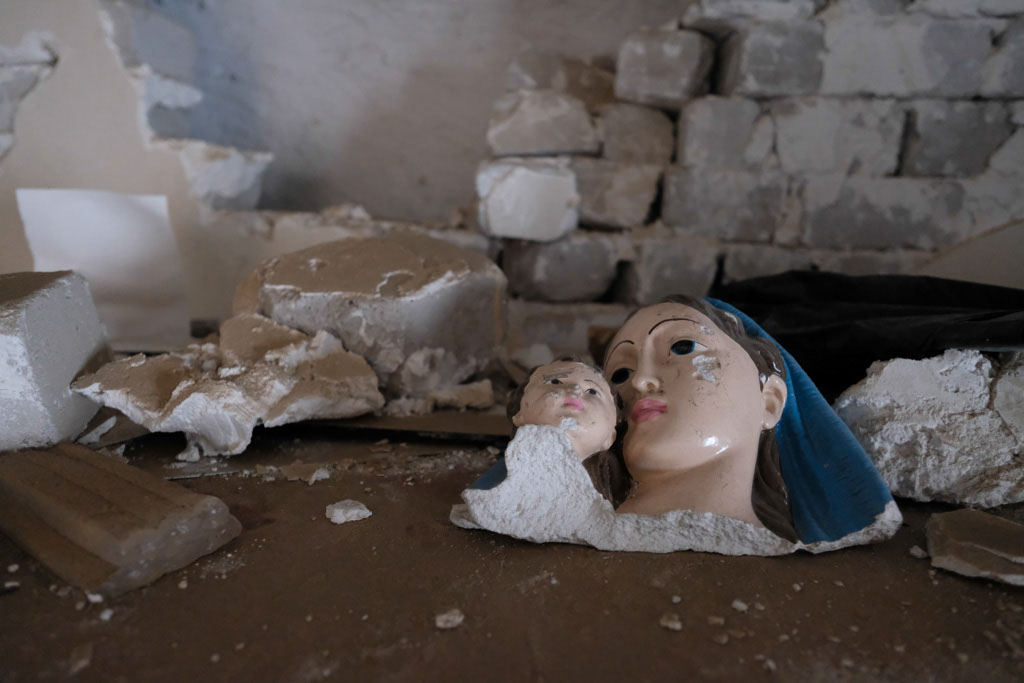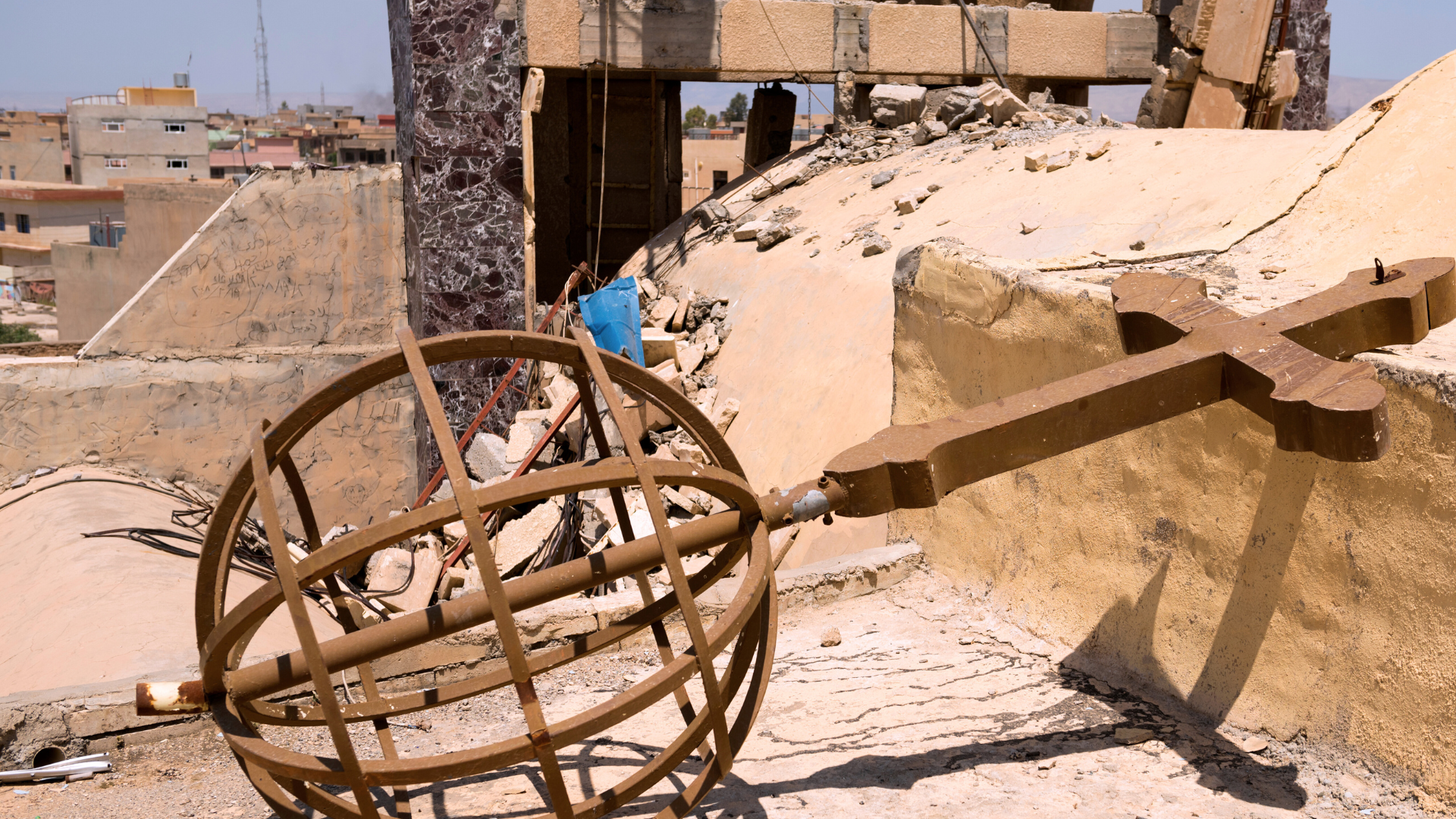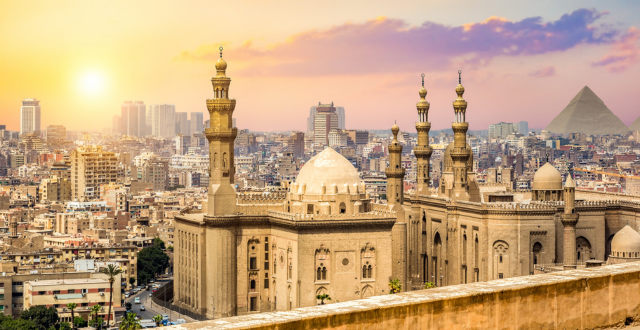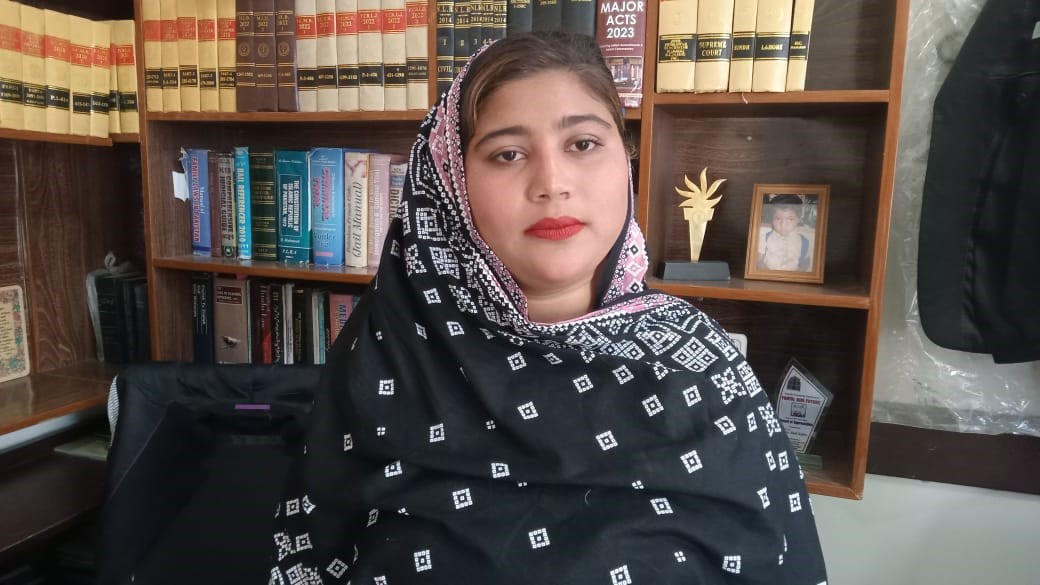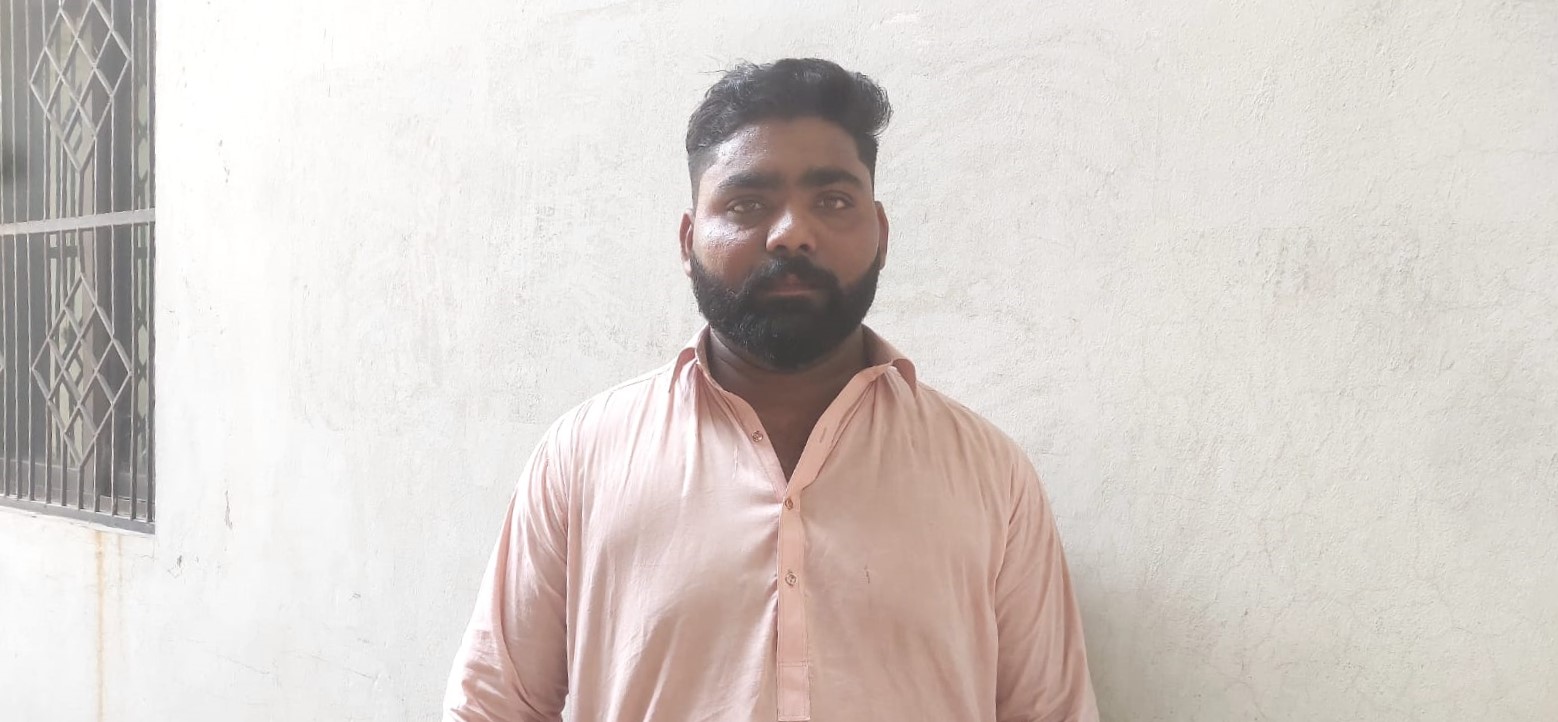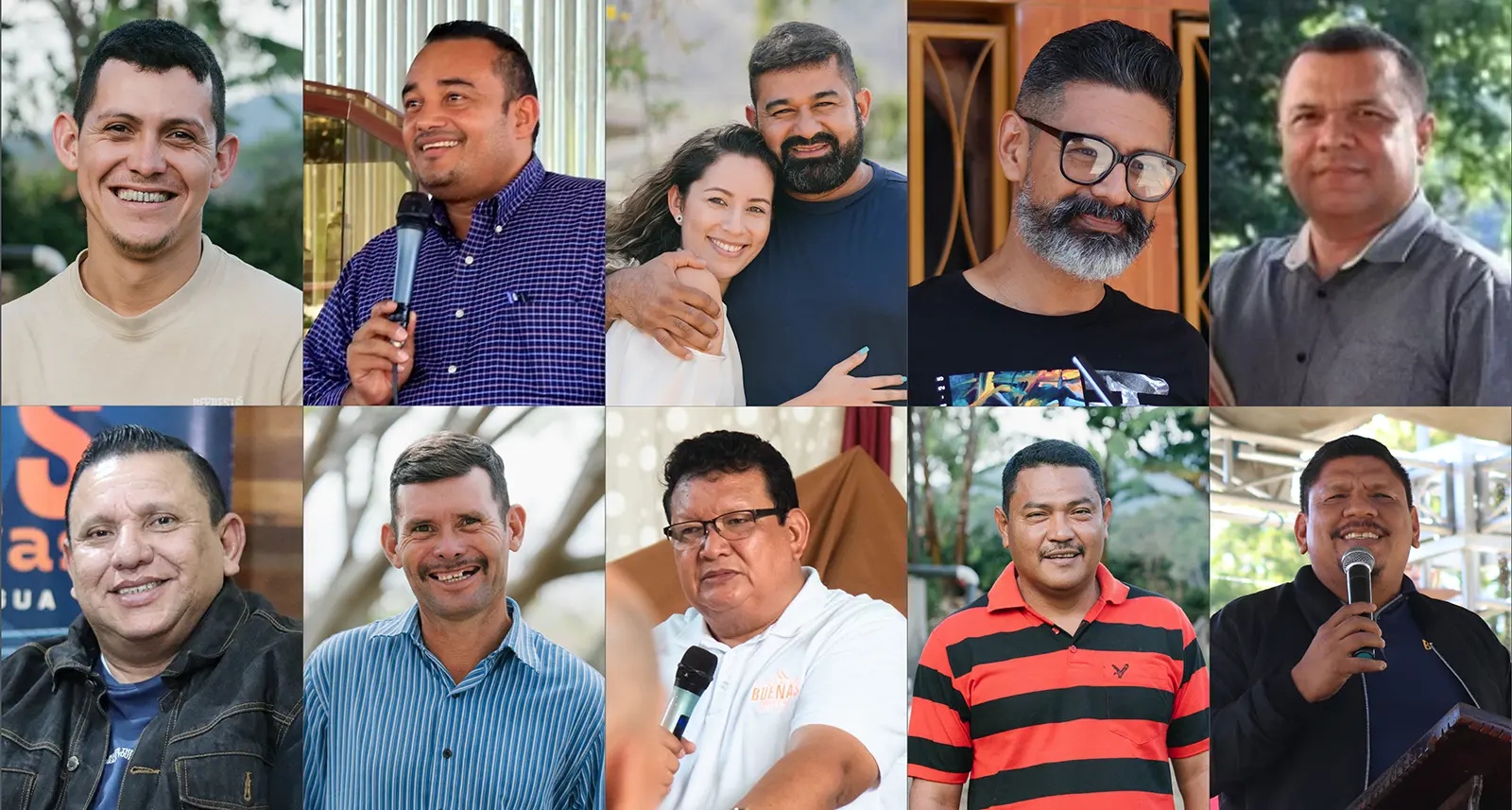Today, the international community marks the tenth anniversary of the 2016 recognition of the genocide committed by ISIS against Christians, Yazidis, and other religious and ethnic minorities in Syria and Iraq by the European Parliament.
Continue readingU.S. Congress Introduces Resolution Condemning Persecution of Christians in Nigeria
- Resolution urges U.S. and international action to protect Nigerian Christians amid widespread religious persecution
- ADF International endorses the resolution and applauds the call to further protect religious freedom in Nigeria following the Trump administration’s move to designate it as a “Country of Particular Concern”

WASHINGTON, D.C. (4 November 2025) – Today, U.S. Congressman Riley Moore (R-WV) introduced a resolution condemning the ongoing persecution of Christians in Nigeria and calling for urgent action following the United States government’s recent designation of Nigeria as a “Country of Particular Concern” (CPC). President Donald Trump recently asked Congressman Moore and the House Appropriations Committee to lead Congressional investigations and recommendations to combat the persecution of Christians in Nigeria. The designation recognizes the severe and systematic violations of religious freedom facing Nigerian Christians and opens the door for strong diplomatic and other measures to hold perpetrators accountable.
“Jihadists are carrying out a systematic campaign of widespread religiously-motivated attacks against Nigerian Christians. The evidence is overwhelming: targeted killings, massacres during holy days, and a death toll that exceeds the rest of the world combined,” said Sean Nelson, Senior Counsel for Global Religious Freedom at ADF International.
“We commend Congressman Moore for this decisive leadership in response to the President’s clarion call to defend persecuted Christians in Nigeria and globally. The United States must use every diplomatic and economic tool available to ensure that Christians in Nigeria can live and worship without fear of violence or death."
- Sean Nelson, Senior Counsel for Global Religious Freedom at ADF International
The resolution identifies “Boko Haram, the Islamic State West Africa Province, and Fulani militant groups” as the main jihadist groups targeting Christians in Nigeria, while also describing “the Nigerian Government’s failure to act in defense of Christians.” The resolution calls on the U.S. to pressure the Nigerian government to end impunity for attacks, proactively protect Christian communities and clergy from attacks, return internally-displaced persons to their homelands, and repeal the country’s draconian blasphemy laws and release prisoners detained for their faith. The resolution also calls for the delivery of humanity aid directly to victims in coordination with international nongovernmental and faith-based organizations
Moore has previously introduced legislative measures addressing violations of religious freedom, underscoring the global crisis of Christian persecution. Today’s resolution continues that effort and reinforces bipartisan congressional concern regarding Nigeria’s record numbers of Christian deaths and violations against religious freedom.
“This resolution condemns the horrific persecution of Christians in Nigeria. For far too long, the world has turned a blind eye to the suffering of innocent Christians—entire villages destroyed, churches burned, pastors tortured, families torn apart. This grave suffering must end now,” said Representative Riley Moore.
“I’m calling on all my colleagues – both Republican and Democrat alike – to unite in defense of faith and freedom. The United States must make it clear that we will not tolerate the slaughter of Christians or the persecution of anyone for their belief in Jesus Christ. I want to thank President Trump for his bold and unwavering leadership in defense of Christians in Nigeria. His official designation of Nigeria as a Country of Particular Concern will save the lives of thousands of Christians.”
The U.S. Congress has taken significant notice of the situation in Nigeria following the Trump administration’s designation of the country as a CPC. Congressman Chris Smith (R-NJ), who for years has led efforts to highlight the issue of religious persecution in Nigeria within Congress, introduced a resolution earlier this week affirming support for Nigeria’s CPC status. In addition, thirty-one members of the House Values Action Team have issued statements commending the designation.
Background
Recent estimates indicate that more than 7,000 Christians have been killed for their faith in 2025 alone — an average of 35 Christians murdered every day — adding to the more than 50,000–100,000 Christian deaths since Boko Haram’s insurgency began in 2009. More than 19,000 churches have been attacked or destroyed, and in Benue and Plateau States alone, more than 9,500 individuals, mostly Christians, were killed between May 2023 and May 2025, with roughly half a million newly displaced.
Nigeria remains one of only seven countries worldwide that retain a death-penalty blasphemy law, enforced across twelve northern states. ADF International provides legal support to individuals wrongly imprisoned under these laws, including Sufi musician Yahaya Sharif-Aminu and Christian mother Rhoda Jatau, who endured imprisonment for alleged “blasphemy.” Sharif-Aminu’s case is currently before the Supreme Court of Nigeria, with the potential to overturn northern Nigeria’s blasphemy regime.
What Can We Learn from Iraqi Christians 11 Years After ISIS’s Attack?
A Legacy of Faith Under Fire for Iraqi Christians
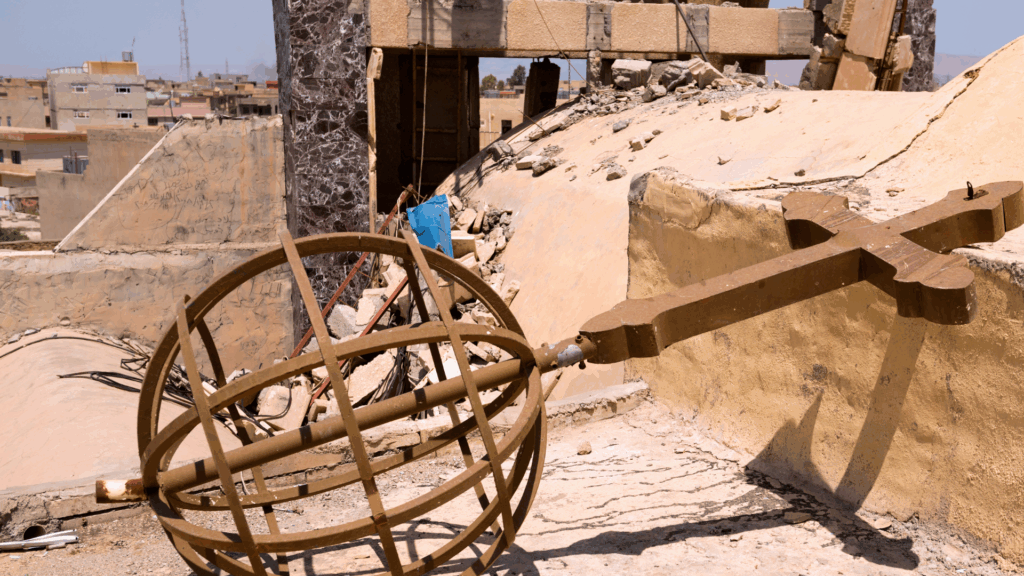
In August 2014, the Islamic State of Iraq and Syria (ISIS) — an extremist Sunni group — launched a violent campaign across northern Iraq. Their target: Qaraqosh, an ancient Christian city located in the Nineveh Plains.
What followed became one of the most devastating assaults on religious minorities in modern Iraqi history. Now, eleven years later, the story of Iraq’s largest Christian community is far from over, and far from hopeless.
At ADF International, we’re standing alongside Iraq’s Christians, advocating for their right to worship freely and raising global awareness of their struggle.
Christianity’s Deep Roots in Iraq
Christianity is not foreign to Iraq — it’s foundational. Long before ISIS and Islam, Christianity had already taken root in Iraq. In fact, Christianity has existed in Iraq since the first century AD, long before it reached many parts of Europe.
This makes Iraq home to some of the oldest Christian communities in the world.
The Assyrian Church of the East, the Chaldean Catholic Church, and the Syriac Orthodox Church all trace their lineage to Iraq. These churches preserve early liturgical traditions and still conduct services in Syriac, a dialect of Aramaic — the language spoken by Jesus.
Many Iraqi Christians today are ethnic Assyrians, descendants of the ancient Assyrian Empire, which once ruled over much of the Middle East. Christianity became embedded in Assyrian identity after their conversion in the first few centuries AD, blending ancient cultural heritage with deep Christian faith.
Just south of the Nineveh Plains lies the region of southern Mesopotamia, where the ancient city of Ur — the birthplace of Abraham, the patriarch through whom God’s redemptive promises and Jesus flow — is located.
This land is steeped in sacred history. But history alone has not guaranteed safety for Iraq’s Christians.
The 2014 Genocide: What Happened to Iraqi Christians
In the 2014 attack, ISIS aimed to establish a caliphate in northern Iraq, one free of Christians, Yazidis, and other minorities. Qaraqosh, the largest Christian city in Iraq, was one of its primary targets.
The violence extended far beyond Qaraqosh. Sinjar, the heartland of the Yazidi people, and Mosul, once a city of rich religious diversity, were left shattered under the same campaign of destruction.
Entire villages were emptied. Ancient Christian manuscripts and artifacts were destroyed or sold on the black market. Communities that had existed for nearly 2,000 years were uprooted in a matter of days.
The assault was systematic:
- Churches and monasteries were burned, bombed, or turned into prisons and weapons depots.
- Christian symbols — crosses, icons, statues — were desecrated or publicly destroyed.
- Homes and businesses were looted and marked with the Arabic letter “ن” (nūn), short for Nasrani (Christian), a brand of targeted extermination.
- Graves and cemeteries were desecrated in an attempt to erase memory itself.
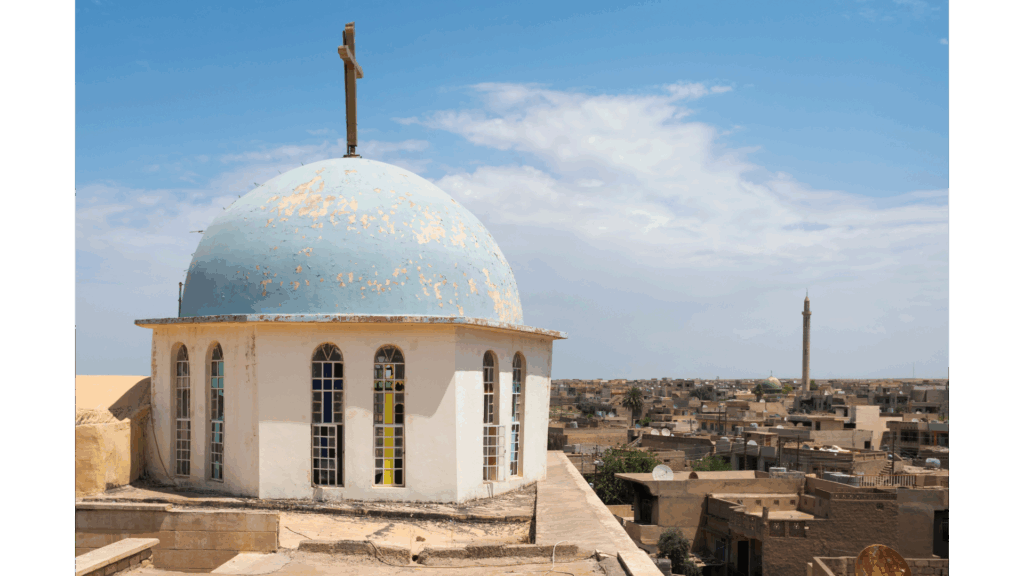
Christians and Yazidis were given four choices: convert to Islam, pay the jizya — a humiliating religious tax imposed on non-Muslims under extremist rule — flee, or die. Nearly 80,000 Christians fled their homes in a desperate exodus.
Women and Children: The Most Vulnerable
Women and girls, especially from Yazidi and Christian communities, suffered some of the worst atrocities. ISIS ran an organized network of slave markets where girls, some as young as nine, were bought, sold, and passed between fighters.
Over 6,800 Yazidi women and children were abducted, according to UN reports, and an unknown number of Christian girls were subjected to similar fates. Many have never been found.
In the chaos, tens of thousands sought refuge in the Kurdistan Region, where the regional government, while limited in resources, opened its borders. Most found shelter in refugee camps, unfinished buildings, or makeshift settlements. For many, those “temporary” shelters have now become permanent.
The Lasting Impact of ISIS’s Attack
Before ISIS’s brutal campaign, an estimated 350,000 Christians lived in Iraq. Today, that number has dwindled significantly.
As of 2024, it’s estimated that less than half of the original Christians who fled the Plains have returned. Security concerns, economic hardship, and limited infrastructure continue to hinder full resettlement.
Many Iraqi Christians remain uncertain about their ability to live openly and safely as Christians in their own homeland.
To defend themselves, locals formed the Nineveh Plains Protection Unit (NPU), a militia dedicated to defending their communities. By 2017, a coalition of Iraqi forces, Kurdish Peshmerga, local militias, and US-led air support liberated the region.
While ISIS may no longer control the region, Christians in Iraq continue to face:
- Discrimination in law and daily life.
- Threats and intimidation from militias and extremist groups.
- Barriers to reclaiming stolen homes and properties.
- Government failure to protect religious minorities.
- A lack of legal recognition and representation.
These ongoing struggles reveal a deeper truth: Iraq’s legal system, still fragile after decades of conflict, has yet to prove it will uphold the rights of Iraqi Christians.
A Visit to Qaraqosh: Seeing the Present Reality
In 2021, Pope Francis visited Iraq, including Qaraqosh, bringing global attention to the plight of Iraqi Christians. His message was clear: Iraqi Christians are not forgotten.
Earlier this year, Sean Nelson, ADF International’s Legal Counsel for Global Religious Freedom, visited Qaraqosh and the surrounding areas.
Amidst ruined buildings and ongoing hardships, Sean met determined individuals working to rebuild homes, reopen churches, and restore dignity to daily life.
What Nelson Experienced
“What I saw in Qaraqosh was Christians deeply committed to rebuilding their lives and their communities after the horror of ISIS. Many churches had been renovated and restored, and one church that was over 1000 years old, but had been left in ruins for a century, had been completely rebuilt after ISIS. Crosses were proudly displayed. And the communities were committed to never forgetting what ISIS had done. Each church still had memorials and sections showing the devastation.
“Still, these communities have seen their populations cut in half since before ISIS. Religious leaders mentioned illegal and dubious encroachments on land, and a lack of political representation and economic development. They were unanimously concerned that the Iranian-backed militias surrounding them were preventing them from being fully included as members of Iraqi society.
“I saw children playing outside one church whose families had secretly converted to Christianity. They could not visit Christian services openly out of fear of violent reprisals. The religious leaders worried that if things did not change, so many people would leave and never return. They saw sustained international pressure as one of their only hopes for most Christians to be able to remain.
“In nearby Erbil, within the autonomous Kurdistan region, where many Christians fled during the ISIS attacks, Christians are able to live relatively free lives, and the local government respects them more and celebrates the religious diversity and history of the area. They still face some hardships —particularly converts from Islam, who face violent threats — but in general, there was a more inclusive vision for Christians. That same kind of inclusion should be available to Christians in the Nineveh Plains and throughout Iraq.”
Though the situation in Iraq is slowly changing, the threat to Christian communities remains a pressing concern in Iraq and beyond.
ISIS Elsewhere
Although ISIS has waned as a threat in Iraq, its influence is spreading across the Middle East and Africa. The Middle East Media Research Institute (MEMRI), a Washington, DC-based counterterrorism research group, warns of what it calls a “silent genocide” targeting Christians.
In 2025
According to MEMRI, the Islamic State Mozambique Province (ISMP) recently published 20 images celebrating four separate strikes on Christian villages in the Chiure district of Mozambique’s northern Cabo Delgado province.
The photographs depict ISIS fighters storming villages, setting fire to a church, and destroying homes. The photographs also include scenes of the beheading of a person described by the extremists as belonging to “infidel militias,” along with two Christian civilians. Additional photographs, MEMRI’s review noted, show the bodies of several people identified by the group as members of these so-called militias.
In recent weeks, Islamic State affiliates have also claimed responsibility for killing dozens of Christians during a Catholic vigil in Komanda, DRC, and for bombing the Mar Elias Church in Damascus, Syria, which killed 20 plus Christians and injured 60.
Conclusion: The Road Ahead Requires Standing for Religious Freedom in Iraq
World leaders and international institutions must urgently unite behind a clear and effective strategy to dismantle the Islamic State network before more lives are lost.
Freedom of belief and religion is a fundamental human right. We at ADF International remain committed to defending this right for Christians around the world. We are standing with them, advocating for them, and praying for a future where they can thrive in the land their ancestors have called home for centuries.
We will continue to:
- Advocate for legal protections for religious minorities in Iraq and elsewhere
- Support survivors in their fight to rebuild lives
- Raise global awareness through policy engagement and media
- Pray for a future where faith can flourish without fear
Every day that goes by without bold action puts more lives in danger. We must act now — and we are.
Why Christians Face Persecution in Egypt and How There’s Hope
Christians in Egypt are under threat in a country where 10% of the population is Christian. Our Global Religious Freedom Legal Counsel, Lizzie Francis Brink, tells the story.

Legal Counsel for Global Religious Freedom with ADF International
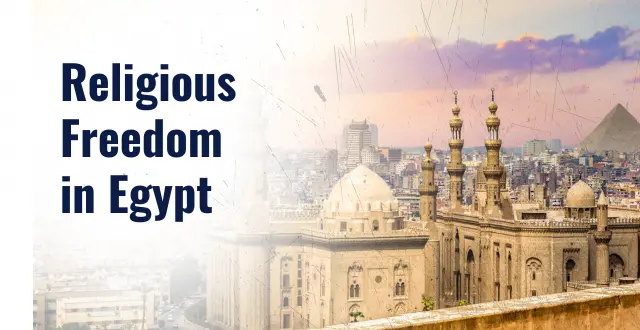
Scripture reminds us that persecution is part of being a Christian, but few realize the scale of it today. Around the world, 1 in 7 Christians face harassment, violence, or worse simply for their faith. In Africa, this number rises to 1 in 5.
Among the persecuted are Egypt’s Christians, who live in a land of ancient wonders and rich history—yet face daily discrimination, harsh restrictions, and constant pressure to hide their faith. Despite Egypt’s status as a cultural and historical giant in Africa, it remains an ongoing struggle for many believers.
In March, I travelled to Egypt to meet with some of these brave Christians and their dedicated lawyers. Together with allied lawyers on the ground, ADF International is committed to ensuring that our brothers and sisters in Egypt are free to live and speak the truth.
Christians in Egypt
Egypt has a population of approximately 111.2 million people. Christians make up roughly 10% of this population, making them the largest Christian minority in the Middle East and North Africa (MENA) region.
Around 90% of Egyptians are Sunni Muslims, making Islam the dominant religion. According to Article 2 of Egypt’s Constitution, Islam is the official state religion, and the principles of Sharia Law serve as the primary source of legislation in the country.
While Article 64 of the Egyptian Constitution guarantees “absolute” freedom of religion or belief, this right is restricted in practice. Only followers of the three recognized “heavenly religions”—Islam, Christianity, and Judaism—are legally allowed to practice their faith and build houses of worship publicly.
Additionally, Article 53 of the Egyptian Constitution protects against discrimination based on religion.
But despite Egypt’s constitutional guarantees, Christians and other minority religious groups in Egypt regularly face religious freedom violations. Discriminatory practices and laws continue to restrict the ability of Christians, Shia Muslims, Ahmadis, and other non-Sunni or non-state-sanctioned Muslim groups, along with non-Muslim communities, to express and practice their beliefs freely.
The southern part of Egypt is particularly dangerous for Christians. It is more Islamically conservative than the north and heavily influenced by Islamic extremist groups. The Salafi al-Nour party, which operates legally despite constitutional bans, thrives in these underdeveloped regions, fuelling hostility toward Christians.
The Reality of Christian Persecution in Egypt
In Egypt, most persecution against Christians happens at the community level, especially in rural areas. Christian women are harassed, children are bullied in schools, employment discrimination is common, and false accusations of blasphemy often trigger violent mob attacks. These incidents force entire Christian families to flee their homes in fear.
In more extreme cases in the past, churches have been bombed, leaving dozens dead or injured. Christian women and girls have been targeted for abduction, forced conversion, and sexual violence.
While Egyptian President el-Sisi often calls for unity and support for Christians, progress on the ground remains slow. Local authorities often overlook attacks and rarely offer protection, particularly in the south. This means that challenging religious freedom injustices can also pose risks to personal safety.
Christians also face countless obstacles in building or repairing churches. Despite government promises to legalize more churches and build new ones, Christians struggle to find safe and legal places of worship. Hostile neighbours and violent mobs often stand in the way.
Converts from Islam face even greater persecution. Many are ostracized, disowned by their families, or pressured to return to Islam. State security forces monitor, intimidate, and sometimes detain converts, silencing any attempt to openly practice their Christian faith. Egyptian law makes it nearly impossible to officially change one’s religion from Islam.
Christians also face significant human rights challenges at the institutional level. Egypt’s blasphemy laws are often used to unjustly prosecute people for actions or statements deemed offensive to the dominant religion. Penalties range from hefty fines to prison sentences and, in extreme cases, death sentences.
Egypt’s International Promises and Rights Violations
Egypt has signed global treaties that promise to protect basic human rights. These include:
- International Covenant on Civil and Political Rights (ICCPR)
- International Covenant on Economic, Social, and Cultural Rights (ICESCR)
- Convention Against Torture (CAT)
- Convention on the Elimination of Discrimination Against Women (CEDAW)
- Convention on the Rights of the Child (CRC)
However, the reality on the ground often results in Egypt falling short of these obligations, especially when it comes to Christians:
- Violence against Christians goes unpunished (ICCPR Art. 2)
- Christians are unfairly accused of blasphemy (ICCPR Arts. 18 & 19)
- Children of Christian converts are forced to register as Muslim (ICCPR Art. 18, CRC Art. 14)
- Christians face job discrimination because of their faith (ICCPR Art. 26)
- Churches struggle to get building permits or legal status (ICCPR Arts. 21 & 26)
- Christian women, especially in villages, face kidnapping and forced marriage to Muslim men (ICCPR Art. 23, CEDAW Art. 16, ICESCR Art. 10)
Abdulbaqi Abdo
ADF International has been supporting the legal defence of Abdulbaqi Saeed Abdo, a Yemeni-born Christian convert and victim of religious persecution in Egypt.
In 2021, Egyptian authorities arrested him for his involvement in a private Facebook group supporting Muslims who converted to Christianity. Officials falsely accused him of “joining a terrorist group with knowledge of its purposes” and “contempt of the Islamic religion.”
For over three years, Abdulbaqi was moved between several detention and terrorism centres, subjected to terrible conditions that impacted his health. He was also repeatedly denied private family visits and access to his legal team, cutting off his ability to receive basic supplies or confidential legal support.
In August last year, Abdulbaqi sent a heartbreaking letter to his family, announcing plans to begin a hunger strike due to the ongoing injustice. He said he would refuse medical care and eventually stop eating altogether.
After years of national and international advocacy, we helped secure his release by working closely with his lawyers and raising his case before the United Nations Working Group on Arbitrary Detention and other global religious freedom experts. We argued that Egypt violated his rights to religious freedom and a fair trial.
Thanks to this combined international effort, Abdulbaqi was freed in January this year and reunited with his family. He is now safe in another country, and we continue to support him as his case remains open.
Egypt’s Online Cybercrime and Blasphemy Laws
Under Egypt’s Cybercrime Law (175/2018), people have been investigated, arrested, and prosecuted simply for expressing their beliefs online.
Article 25 bans using technology to “violate family principles or values in Egyptian society.” This vague wording gives authorities sweeping power to censor online content and criminalize peaceful religious discussions or faith-based content on social media.
At the same time, Article 98(f) of Egypt’s Penal Code criminalizes “insulting the three heavenly religions”, though it is most often used against criticisms of Islam.
Despite international pressure to end violations of freedom of religion and speech, Egypt has shown no real effort to reform or repel these laws. Instead, religious minorities continue to be targeted.
The combination of laws designed to control terrorist activity and restrict free speech in Egypt was used to justify the arbitrary detention of Abdulbaqi for over three years.
Abdulbaqi’s case is just one of various examples of persecution faced by Christians in Egypt and across Africa.
My Trip to Egypt
ADF International has been actively involved in litigation and legal advocacy in Egypt for several years, defending religious freedom and supporting Christians facing persecution.
During my trip to Egypt, I met with the Christians we defend. I listened to their stories and saw firsthand how our alliance is standing alongside them as they fight for their right to live and worship freely.
I reconnected with our dedicated network of human rights lawyers—courageous defenders working in a country where laws are often misused to suppress religious expression. It was inspiring to strengthen these partnerships and establish new connections with Christian ministries supporting those who live out their faith.
I had the privilege of meeting Mr. Emad Felix, Abdulbaqi’s primary advocate. Mr. Felix supported the Abdo family from the start of Abdulbaqi’s detention in 2021. He has visited the court every few months since his incarceration to plead that he be released. His dedication exemplifies the vital role local lawyers play in defending religious freedom.
Our ability to engage in these critical cases would not be possible without such committed partners. We are grateful for the strong working relationship we have with lawyers in Egypt and remain committed to supporting them as they take on more cases to defend the fundamental Christian freedoms that are so often taken for granted in the West.
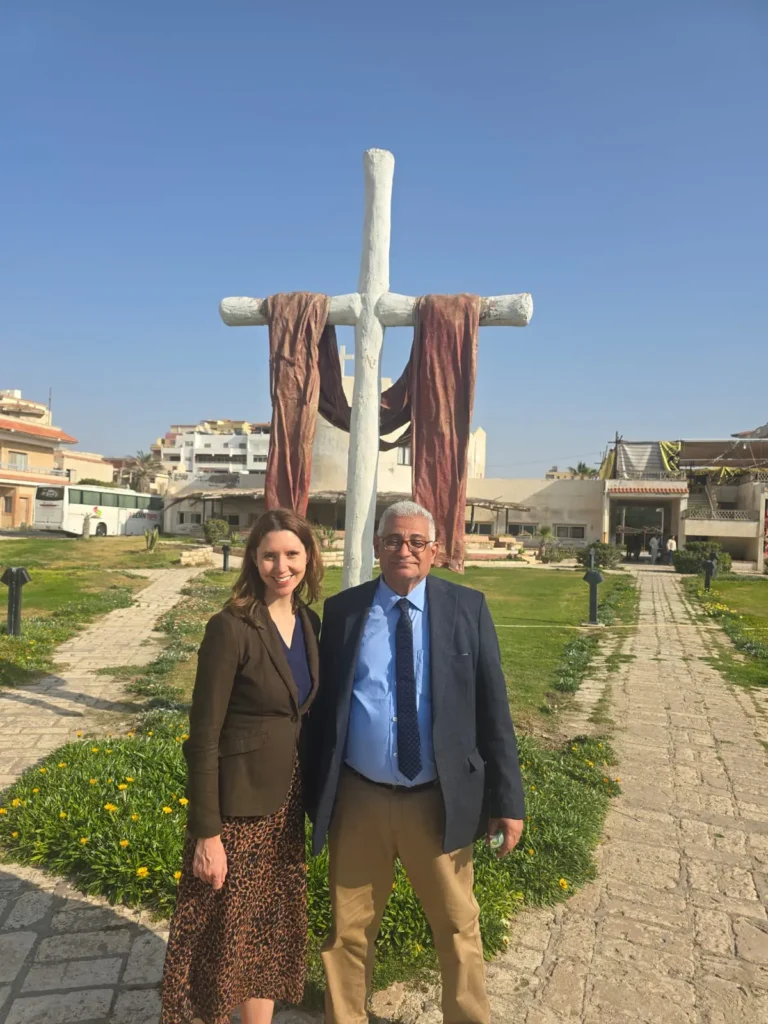
Conclusion: Religious Freedom is Severely Restricted in Egypt, but There is Hope
Egypt’s Christians live under constant pressure—from discriminatory laws, violent attacks, and systemic injustice. Despite constitutional promises and international treaties meant to protect religious freedom, the reality presents critical challenges.
Yet, in the face of such hardship, the courage and resilience of Egypt’s Christian community are a powerful testament to the enduring hope of the Gospel. During my trip, I witnessed that hope firsthand.
At ADF International, we are deeply committed to this fight. Our work in Egypt, alongside courageous local partners, is just one part of our broader mission to defend Christians wherever they are persecuted and to hold countries accountable to their human rights obligations.
Abdulbaqi’s release is a clear example that our efforts, combined with international pressure and prayer, can bring real change—and we’ve seen similar breakthroughs elsewhere in Africa and beyond.
While the road ahead is long, we remain steadfast. The Gospel continues to shine brightest where darkness tries its hardest to overcome it. Together, we will keep standing with Egypt’s Christians until the promise of true religious freedom becomes reality.
Pakistani Christian girl’s forced marriage annulled in win for religious freedom
- Christian 18-year-old Shahida Bibi’s forced conversion to Islam and forced marriage to her stepfather’s brother have been annulled by a court in Pakistan.
- Minority women and girls, often Christian, in Pakistan face dual threat of forced conversion and marriage; ADF International supports their defence to end this human rights abuse.
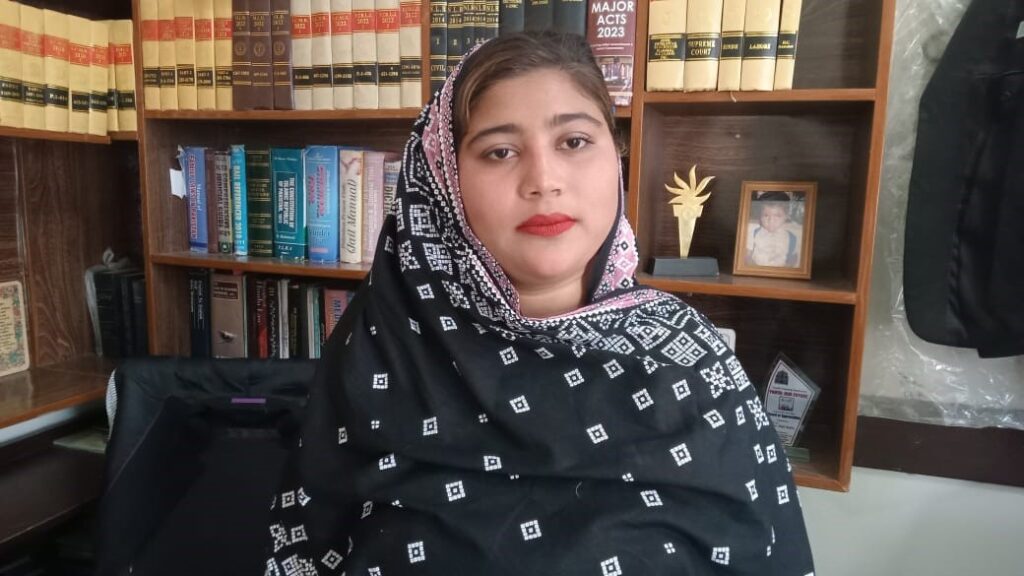
Pictured: Shahida Bibi
PAKISTAN (10 March 2025) – Shahida Bibi is now free to return home to her father and to her Christian faith after a court in Pakistan annulled her forced conversion and marriage to her stepfather’s brother. Bibi was 11 years old when her mother eloped with a Muslim man, who then “gave” Bibi to his brother. Bibi went on to give birth to two children, and the brother contracted Islamic Nikah, or a marriage union, to Bibi when she turned 18 in order to escape prosecution under the anti-child marriage law.
In February 2025, a civil court in Bahawalpur, Pakistan issued a decree in favor of Bibi and ordered that Bibi’s forced marriage be dissolved on all identification documents. Bibi was issued new documents that correctly state her religion as Christianity. ADF International and allied attorneys supported Bibi’s legal defence.
Globally, 100 million girls are at risk of being forced into child marriage over the next decade, according to UNICEF. The threat for girls from religious minorities, particularly in certain parts of Asia and Africa, of also being coerced into changing their religion in connection with a forced marriage is particularly acute. In Pakistan, for example, more than 1,000 girls from religious minorities are forced into conversion and marriage every year.
“Nobody should suffer the horrors of abduction and forced marriage, further being forced to give up their faith,” said Tehmina Arora, Director of Advocacy, Asia for ADF International. “We are grateful that Shahida Bibi has received justice over her captor. Shahida is now free and able to begin the process of healing from this ordeal. These cases are a tremendous violation of these young women’s basic human rights, including their religious freedom.”
ADF International and allied lawyers are engaged in supporting women and girls suffering from forced marriage in light of the recurring issue where women and girls, often Christian, are forced to convert to Islam for their marriage to be validated by a Sharia court.
Girls from minority religions face acute risk globally
Under Sharia law, which permits marriage at the age of puberty, the marriage age is lower than the official marriage age, which varies between 16 and 18 years in different Pakistani states. When girls are forced to convert, their parents often are unable to stop the violation from happening. These women and girls often are fearful for their lives and those of their families, preventing them from denouncing their captors.
“While these forced conversion and marriage abuses happen across the globe, they are especially prevalent in Pakistan. In coordination with our allied lawyers in the country, we are taking every step possible to prevent these situations from occurring. The government has an opportunity to make a difference, and they should start by implementing a uniform age for marriage to prevent these forced kidnappings and marriages from happening in the first place. Every person under international law has the right to freely choose and live out their faith without fear of violence. Every state, including Pakistan, must ensure that their laws and policies are in line with their commitments to protect religious freedom under international law, and that the laws they do have in place to protect girls from these violations are enforced,” Arora continued.
International spotlight on Pakistan
The victory in Shahida Bibi’s case comes as human rights leaders from across the globe are turning their attention to Pakistan’s egregious human rights violations.
In January 2025, officials from the European Union issued a warning to Pakistan regarding their human rights violations, including blasphemy laws, forced conversions, and other targeted persecution against religious minorities. If not addressed, Pakistan’s trade relations with the EU could be jeopardized.
In 2024, Senators Chris Coons (D-DE), James Lankford (R-OK), Tim Kaine (D-VA), and Thom Tillis (R-NC) introduced a bipartisan resolution that called for the U.S. to “leverage all diplomatic and sanctions tools available to the United States Government to hold religious freedom violators accountable for their actions”. The resolution specifically points to religious freedom violations, including forced marriages and conversions, in Pakistan, among other countries. The resolution was widely supported by religious freedom advocates and organizations from across the globe.
ADF International has highlighted the testimonies of survivors of forced marriages and conversions in a mini-documentary.
Images for free use in print or online in relation to this story only.
WIN in Pakistan for Christian fraudulently “converted” by employer in attempted enslavement
- Sufyan Masih, a 24-year-old Pakistani Christian, was fraudulently designated as a Muslim on his National Identity Card by his employer to falsely “convert” and enslave him.
- Authorities in Pakistan systemically deny and delay changes to ID cards with significant human rights implications; Backed by ADF International, Masih’s identity card has been corrected to “Christian” after a 6–year legal ordeal.
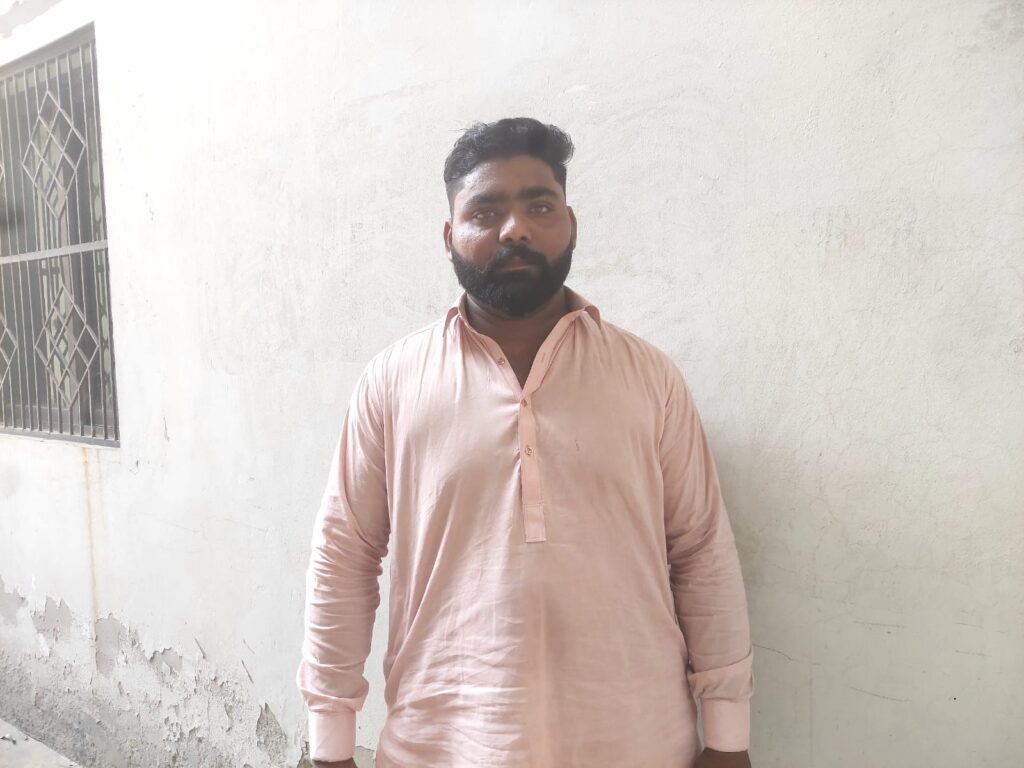
Pictured: Sufyan Masih
Kasur District, Pakistan (04 March 2025) Sufyan Masih, a 24-year-old brick kiln worker and Christian, has been legally allowed to register as a Christian following a 6-year-long legal ordeal in Pakistan. Masih was fraudulently “converted” and registered by his employer as a Muslim on his National Identity Card. The employer registered Masih as a Muslim in an attempt to enslave him, including withholding pay and prohibiting him from returning to his family. The employer claimed that he “adopted” Masih when he fraudulently switched his identity to a Muslim.
Masih and all his family members are illiterate and could not understand the ID form. His case is just one of the many examples of targeted harassment through the National Identity Card system.
In a May 2024 verdict, a civil judge in Pakistan rejected Masih’s petition to change his identity to Christian despite his testimony that he was not practicing the Islamic religion. Authorities in Pakistan deny and delay changes to ID cards once someone is registered as Muslim on the basis of the belief that everyone is born Muslim. Muslims are not allowed to change their religion on the ID cards. A change in religion on ID cards is only allowed when you are able to show that there was an error in the record or when you are converting to Islam. As stated by civil judge Mian Usman Tariq in Masih’s 2024 trial: “Islam teaches that everyone is Muslim at birth but the parents and society cause one to deviate from the straight path”.
Desperately attempting to recover their son, Masih’s family turned to ADF International for legal support. On appeal, a civil judge in Pakistan has now upheld Masih’s right to correct his identity card to reflect his Christian faith, noting that Masih was a victim of false “conversion”.
The end of Masih’s legal ordeal, just one of many examples of systematic religious persecution in Pakistan, comes as officials from the European Union issued a warning to Pakistan regarding its human rights violations, including blasphemy laws, forced conversions, and other targeted persecution against religious minorities. If not addressed, Pakistan’s trade relations with the EU could be jeopardized.
“We are thankful that Sufyan Masih finally is able to freely live and identify as a Christian following so many years of extreme hardship,” said Tehmina Arora, ADF International’s Director of Advocacy for Asia.
“This is yet another example of how laws in Pakistan are weaponized to punish and target Christians. Pakistani authorities make it extremely difficult to “stop” being a Muslim once you are designated as such. This presents a major problem for Christians like Sufyan when they are illegally converted to Islam on their identification documents, which is a pervasive problem and egregious violation of religious freedom. We are grateful for the precedent that is set by this victory, and hopeful that it will go on to protect Christians and other religious minorities in Pakistan who are unjustly persecuted because of their faith.”
Case Background
ADF International allied lawyers filed a petition on Masih’s behalf in September 2022 after the National Database and Registration Authority (NADRA) in Pakistan refused to accept Masih’s requests to correct his religious designation and his name on his national identity card. During the proceedings, allied lawyers submitted evidence, including Masih’s baptism certificate, and presented Masih’s Christian parents in court as evidence of his Christian identity. In addition, Masih himself told the court that he continued to practice his Christian faith and was not a Muslim.
Following the May 2024 verdict in which a civil judge rejected Masih’s petition to identify as Christian, ADF International’s allied lawyers challenged the civil court’s decision in the court of Ahmad Saeed, an additional district judge in Pattoki, who in November 2024 set aside the earlier verdict, holding that Masih was a victim of fraudulent “conversion” by his employers.
Following this court decision, Masih has been able to get his National Identity Card correctly updated to reflect his Christian faith.
Denial of Religious Freedom
Apostasy is considered a sin punishable by death under most schools of Islamic jurisprudence. Although there is no specific law in Pakistan to deny Muslims their right to change religion, apostasy may be punished under Section 295-A of the country’s blasphemy statutes, which imposes up to two years imprisonment for “outraging the religious feelings of any class of citizens.”
In this case, Masih faced the risk of being branded as an apostate or his family members being accused of blasphemy given the appearance that he was converting away from Islam to Christianity, although in reality he was never a Muslim.
International law guarantees the freedom to change one’s religion, along with the right to practice it either publicly and privately. Pakistan is a state party to the International Covenant on Civil and Political Rights, which enshrines the right of every person “to have or to adopt a religion or belief of his choice, and freedom, either individually or in community with others and in public or private, to manifest his religion or belief in worship, observance, practice and teaching.”
“What has happened to Masih and hundreds of others who suffer similar legal abuses in Pakistan is a clear violation of the right to religious freedom guaranteed under international human rights law. Further, Article 20 of Pakistan’s Constitution allows citizens the right to profess, practice and propagate their religion. Masih’s case shows how this fundamental right is being systematically denied, perpetuating a culture where Christians and other religious minorities suffer violations of their basic human rights,” Arora continued.
Images for free use in print or online in relation to this story only.
Formerly Imprisoned Nicaraguan Pastors and Ministry Leaders Pursue Justice at International Court
11 pastors, ministry leaders with Puerta de la Montaña now safe in Guatemala after being sentenced to millions in fines and 10+ years in prison on sham charges.
Continue readingRELEASED FROM PRISON: Nicaraguan authorities release fraudulently convicted pastors, ministry leaders
11 pastors, ministry leaders with Puerta de la Montaña now safe in Guatemala after being sentenced to millions in fines and 10+ years in prison on sham charges.
Continue readingTurkish Authorities Crack Down on Christianity; Deny Church Land for Worship Space
Authorities in Türkiye ignored several requests from the Diyarbakir Protestant Church Foundation to use new land for a worship center; Foundation then brought legal challenge, which was struck down by court.
Continue readingInternational human rights court condemns Nicaraguan government’s imprisonment of Christian ministry leaders, calls for immediate release
The Inter-American Court on Human Rights grants provisional measures to 11 pastors, ministry leaders with Puerta de la Montaña, calling for their immediate release, restored contact with legal counsel, families.
Continue reading


